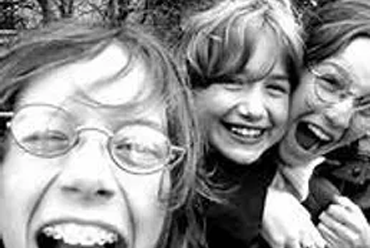And they did.
Twenty thousand negatives comments by the time I was twelve. Those convinced me I was, in fact the lazy, dumb, selfish, poor writer, dreadful speller, awful reader, lost in his own world of thoughts, smart arse kid, they always said I was.
So I was.
There was no use trying to fight it; there was no use trying to fight me; it was Inevitable. After all, they were adults: teachers, siblings, clergy and family. They would have to be correct. It had to be true.
They would pass in and out throughout my life again and again, but their comments lingered. Disbelief became my inner voice and I would shout them at myself more often and more frequently than they ever could. Faker! Their voices become the substance of my self-belief, thick and rigid, not just a belief that I was broken, but an understanding that I was a useless slab. The shame of being me—of being damaged and never enough—solidified as I continued to cause pain to others around me.
Buried deep in my soul was a glimmer of a spark, a thought—short of a belief and decades from comprehension—suffocating under myths, limiting beliefs, causing misunderstandings, ignorance and shame. There was more to me. I would, I should, I could be more if I could just break through this pyramid of ignominy that was me.
And I did.
After forty years of wandering the harsh desert of a half-lived life came that understanding. It ignited my soul! Burned brightly, burned hot, kindling my hope, my acceptance, in me. It was not me but my ADHD. I wasn’t lazy or illiterate, slow or self-centred, stupid,
ignorant or dumb, who had great ideas and never followed through. I had developed depression and rejection sensitivity disorder. I had a comorbid dyslexic condition. I had trouble focusing, trouble persisting until tasks were completed. I was creative and deeply moved by social injustice.
I am intelligent. It was just how I was wired; it wasn’t me. There was no shame in being me. They were wrong after all.
The fragile spark became the fire in my belly rewording myself-talk to be the best me I knew I could, would, and should always be. Healing the younger me and healing now, other fragile young sparks. Fuelling their inner voices with instructions and tools to enable them blaze and shine, to be true to themselves and never feel the shame of being who they are.
Shame is missing from the ADHD conversation.
We now know what is happening in the brain, how to evaluate it, how to strengthen it, how to guide and collaborate with it and we are learning how to live with it, to teach it and how to help it thrive.
We know that each presentation is as unique as a thumbprint. We are learning to identify strengths and to use them to address the challenges we—and they—face. We are developing an internal toolkit of executive functioning strategies to apply, when to apply them, we are moving forward. We know that what we once thought of ADHD as worse than wrong. It caused harm. Many undiagnosed still suffer the secondary wave of undiagnosed ADHD manifestations due to the application of traditional forms of management, Ross Greene’s Plan As.
There have been times, and will be times, when the strategies do not work and the resilient self-talk is exhausted, depleted and quiet. There are, and will be, times of self-doubt in our and their abilities to overcome this significant disorder. Doubt about the people’s own intentions, their ‘goodness’ and the development of a treacherous notion that perhaps they let this occur because deep down they are not a good person.
Combine this with the burden of weight caused by them witnessing all the things that are done for them to help them just to be. Noticing the sacrifice of loved siblings, the patience they demonstrate when the person has forgotten to do or say or get something—again. The patience shown when they have snatched, bossed and demanded their way—again. It is not guilt. It is acceptance of wrongdoing. It is a shame for being who they are and the effect they have—and will have—on others. Shame that their caregiver raised their voice in frustration at another shortcoming; guilt they’re wired the way they are. And there are times there’s nothing they can do about it. Shame can become part of the child’s inner dialogue.
Many people enquire why it is women, and not men, who have developed online communities supporting one another at recognisable life stages. Yes, women use social platforms differently from men, but this also occurs in real life. Yes, there is parental guilt that’s felt and worked through by parents. It is part of parenting a special needs child; it is a hard slog. For dads I suggest there is something else; a lingering provider/gender role reel playing in the backs of minds. The scenes playing centre around themes of not being a ‘good enough’ dad to be able to manage their child at social gatherings like other dads and their kids.
Shame. Realisation shame. What their child is going through is what they went through—and their parents didn’t know help or support them. Shame that their genetic code may be the reason for their child’s struggles. Shame they can’t see how they can provide a future for the child. Shame they punished their child who needed their help, not their discipline.
It is a hard slog for I speak only as a dad and cannot speak to the shame a woman may experience this journey, but still it’s not a conversation that’s heard: a kind conversation filled with empathy and understanding that builds awareness and caution.
It is a conversation needed in order to heal, to accept, and move ahead. A conversation that needs to be had to bring it into the light and out of the shadows of our minds.

